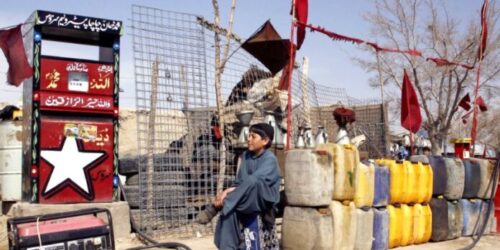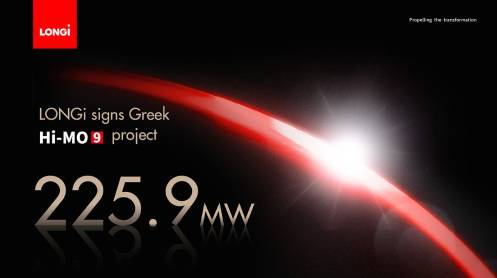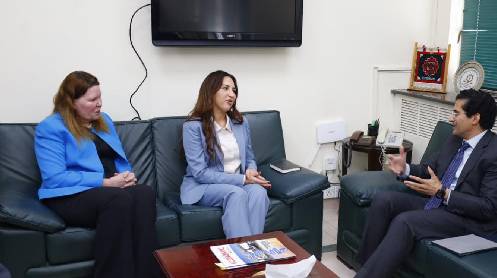Pakistan is bearing an annual loss of Rs240 billion due to the smuggling of Petroleum products, according to the Petroleum Commission’s report which was made public on Tuesday after the federal cabinet’s approval.
Petroleum products, especially motor spirit (MS) and high speed diesel (HSD), are smuggled into Pakistan from the western border of Taftan, Iran.
The tax department during the year 2019-20 seized 27,911,746 litre petrol and 997,037,434 litres smuggled diesel.
The report states that the net loss of revenue on the seized product is around Rs48bn in one year as the government is collecting Rs36.27 sales tax, petroleum levy as well as customs duty on one litre MS and Rs47.22 on HSD.
However, the commission is of the opinion that the seized quantity is only 20 per cent of the actual smuggled amount.
The report also mentioned that there is an unusual rise in MS and HSD consumption in the month of June 2020 as statistics show that the MS, as well as HSD sales, surged to 117,005 and 289,099 metric tonnes in June 2020 comparable to June 2019.
Smuggling by sea
Another avenue that has come forth is the smuggling of petroleum products by sea. In this regard, the report alleged that a private refinery BYCO is involved in this business.
Since BYCO has its own refinery in Hub, a far off and secluded place, there is hardly any check on its imports and what it can smuggle in.
The inquiry report claims that this is possible since BYCO does not have a pier and berth at the refinery. Rather, it uses another method of decanting ships called Single Point Mooring (SPM).
In this method, a platform has been established nearly 18 km in the open sea and the floating platform gets connected to the anchored ship in the open sea. The decanting is done through a submerged pipeline extended on the sea bed from the refinery to the floating platform.
The report also mentioned BYCO Petroleum Pakistan Ltd two specific cases of smuggling through ships.
M.T. Rhea spotted on the tip-off from an international intelligence agency, carried Iranian oil to SPM of BYCO. The second ship, again of BYCO, M.T. ELSA was sent back without being subjected to any laboratory confirmation.
The report claimed that BYCO Refinery imported cheap Iranian crude oil with malafide intentions through fake and forged documents. This was also in contravention of sanctions imposed on Iran. The possibility that the importer company had transferred foreign exchange of Pakistan to Iran through some illegal means, thereby indulging in money laundering, is a matter of further inquiry.
The report states that the matter is pending in Sindh High court as BYCO has challenged the test report of HDIP.
According to Profit’s own research, there are multiple companies in the petroleum supply chain that are involved in smuggling and dumping of Iranian oil, and some of this smuggled oil also ends up at the state-owned PSO retail outlets
The petroleum commission report stated that the business of smuggled product is thriving as it offers a far handsome profit as compared to the margins allowed under the official pricing mechanism.
The commission revealed that 486 filling stations were identified across Pakistan and some of them had monthly MS purchases as high as 600,000 litres but no purchase of HSD.
It can safely be deduced that HSD is being smuggled inside Pakistan in a larger quantity than MS based on the figures provided by the FBR authorities.
The assessment of loss to the government exchequer and the economic impact through this mode of smuggling is difficult to assess; however, the Commission would strongly recommend a deeper probe with respect to the dubious functioning of BYCO Refinery, the document stated.
Similarly, the report also highlighted the Oil Marketing Companies (OMCs) and petrol pump owners’ role in mixing chemicals into the fuel which was considered criminal negligence. In addition, the report also highlighted the mixing of manganese and Naphtha in petrol.
When the Oil and Gas Regulatory Authority (OGRA), on the complaint of Atlas Honda, took samples from PSO, Shell and Total fueling stations, it emerged that 54mg against the standard 24mg of manganese was being added to each kilogram of cheap fuel to enhance its quality.
Commission’s recommendations
The Commission in its recommendations pertaining to smuggling as well as adulteration stated that the government must sensitize the Frontier Corps (South) to take strict measures at the Pakistan-Iran border to curb such colossal evasion of taxes.
“Likewise, the smuggling through sea route goes on as only in the month of July 2020, two huge shipments of Iranian contraband oil were apprehended on the information of international agencies,” it read.
“In this regard, Pakistan Coast Guards assisted by Pakistan Customs have to play their effective role and they may be directed as such,” the Commission recommended. Moreover, the commission further said that the government must set up additional quality control laboratories across the country.
“There is also a dire need for mobile testing units,” the report noted, adding that In coordination with the district administration, such units should routinely check the quality of petroleum products in retail outlets and depots in their area of jurisdiction to curb this menace.





